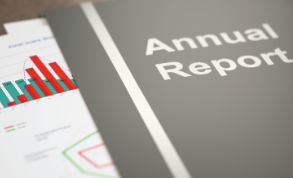Technical / Financial reporting: not many changes but another difficult year
First, the annual report. This is not usually the finance team’s domain, but it is important that those responsible are fully briefed about the changes.
In 2019/20 and 2020/21, because of Covid-19, NHS bodies were allowed to omit the performance report. However, this dispensation has been removed this year, so a full performance report is again required.
Because it has to include trend information, it may be that additional data will need to be collected so the trends can be reported from pre-pandemic years to 2021/22.
There is no requirement for NHS foundation trusts to produce a quality report, but all NHS providers are still required to prepare a quality account. Although the quality account does not need to be included in the annual report, all providers are required to include performance against quality improvement priorities and pertinent indicators in their performance report.
In the remuneration report, the fair pay disclosures have changed. The method for calculating the disclosures has changed and now the 25th and 75th percentiles for both the remuneration and the salary ratio need to be reported alongside the median.
Prior period comparatives are not required, but are considered best practice.
There are no new accounting requirements this year. Having said that, the standards issued but not adopted disclosure should reflect the work that has been done to date to assess the impact of the implementation of new leasing standard IFRS 16 from 1 April 2022.
The information submitted to NHS England and NHS Improvement in January, as well as the planning submissions, should be used as the basis for that disclosure.
It is likely that two areas of the accounts will attract additional attention for 2021/22.
Regulators as well as auditors will be focusing their attention on accruals and provisions this year. The comptroller and auditor general’s report on the Department of Health and Social Care’s annual report and accounts for 2020/21 raised concerns about the increasing levels of accruals in the accounts and the level of accruals error in the accounts.
Put simply, there is concern that estimates and judgements are erring on the generous side. Although the 2020/21 accounts were not qualified because of the errors, for 2021/22 the level of carried forward unadjusted error means that there will be less headroom for further unadjusted errors this year.
The Financial Reporting Council (FRC) reported on the inspection findings into the quality of local audits in October. The areas requiring action by some of the audit firms included strengthening the audit testing of expenditure.
When this is linked to the findings on accruals and the wider pressure on auditors to challenge management’s judgements and estimates, it is inevitable that there will be a focus on accruals and the judgements and estimates that support them.
This is likely to have an impact on work on the agreement of balances, particularly mismatches resulting from year-end.
The second area of focus is losses and special payments – and in particular, special severance payments. This also arises from the auditor general’s report on the Department’s annual report and accounts – in this case a qualified regularity opinion.
This was due to the failure of a clinical commissioning group to seek Treasury approval for a special severance payment made to a senior manager and to disclose the payment in the losses and special payments note.
All special severance payments, which are those outside of the contractual amounts, must be approved by the Treasury in advance of being discussed and agreed with the individual concerned. All severance payments should be disclosed as exit packages and special severance payments disclosed as a special payment.
Debbie Paterson is the HFMA’s policy and technical manager
See the March Technical review
Related content
This forum will bring together national updates, topical issues, best practice examples and networking opportunities.
This conference will keep all those involved with NHS charities up to date with any changes to practices and procedures.